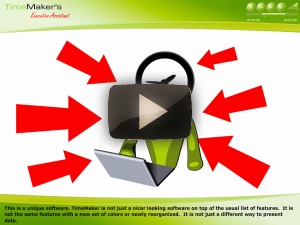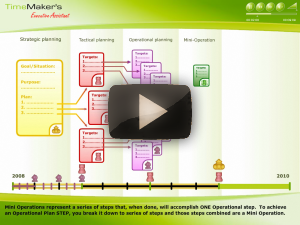Welcome to our 3rd tip! In our last e-mail, “First In, First Out”, we discussed the fact that it’s a necessity to deal with the oldest items in your inbox first – no matter what – and only then handle the more recent ones progressively. This is absolutely true – with just one exception:
For most of us, life is not a quiet and boring road. It is exciting! But it also has an aspect which we all have a certain love/hate relationship with – PROBLEMS.
There are only two kinds of problems in this world: good problems and bad problems.
Good problems are those which challenge us but we still feel we can solve and we just love to tackle; while bad problems are those which we feel are overwhelming. We feel like we can’t solve them at all.
Many of us don’t want problems. If a genie could give you a life with no problems, it would sound like a good idea and you’d probably go for it. However, I can promise you – this would be a boring and useless life, and you would quickly call the genie right back and ask him to give you at least some issues to handle! People love problems because it makes life exciting and gives something to solve!
When you look at a problem and decide it is within your abilities to handle, you will embrace the problem and start handling it – it will no longer be considered a problem as such – it will become a challenge!
When you look at a problem and decide you can not solve it, you will ignore it, avoid it, run away from it or freak out. Any of these options are deadly for you and will always worsen the situation (time heals nothing). Of course there is an “option b” and that is to face and deal with the problem (this is always the correct option with anything in life). The moment you decide to tackle it will be the moment it turns from a problem to a challenge.
So, good problems are considered challenges and bad problems are just considered looming, scary problems.
Problems (not challenges) come about only due to a lack of foresight or planning, and they come in the form of emergencies.
Most people and companies operate on 80% emergencies and 20% planning at best. Therefore, even the best mostly deal with problems and emergencies.
You should know that it is possible (and much easier) to operate on 80% PLANNING and 20% emergencies, and we will cover this subject in further detail in the “TO PLAN OR NOT TO BE” tip. However, emergencies are a fact of life, you do have to deal with them and yes, they do show up in your inbox as red exclamation points.
We also need to cover the “false alarms” situation… People who mark non urgent e-mails as urgent create a kind of false alarm, and if it happens often enough, urgent items start getting ignored. This is no good – it’s like the boy who cried wolf, but for the business world.
So, in light of the “First In, First Out” rule, the question becomes – how do you handle the emergencies that come to your inbox?? Do you deal with the oldest items first and then come up to the emergencies? Nope! Here is the exception.
Following the next simple do’s and don’ts will make sure you properly deal with urgent e-mails or other items.
The purpose of this tip is to enable you to efficiently handle urgent tasks and communications and to make them rare! This will save you a lot of time!
Looking forward to seeing you next week with Tip #4 – HANDLING JUNK EMAILS FOR REAL!
As you know, your feedback, comments and questions are more than welcome! If you like this, odds are your friends will too! Feel free to share this with anyone!
For more tips and ideas, check out my blog at – http://tips.timemaker.org




